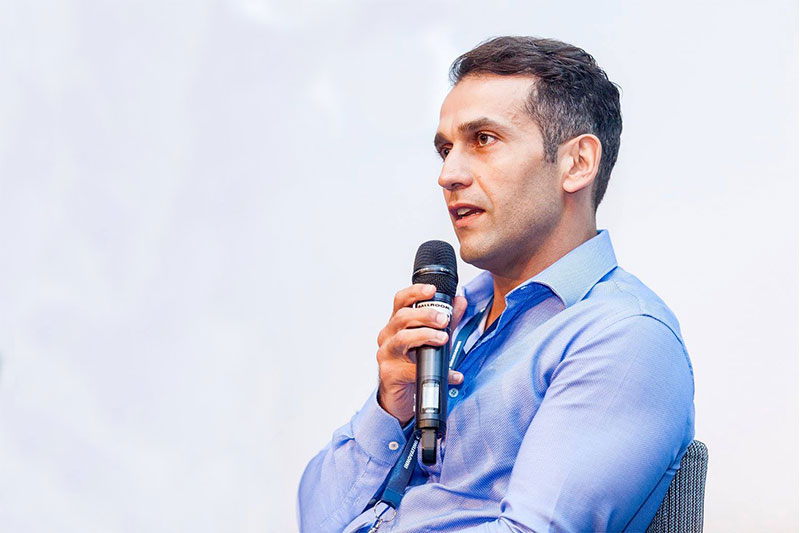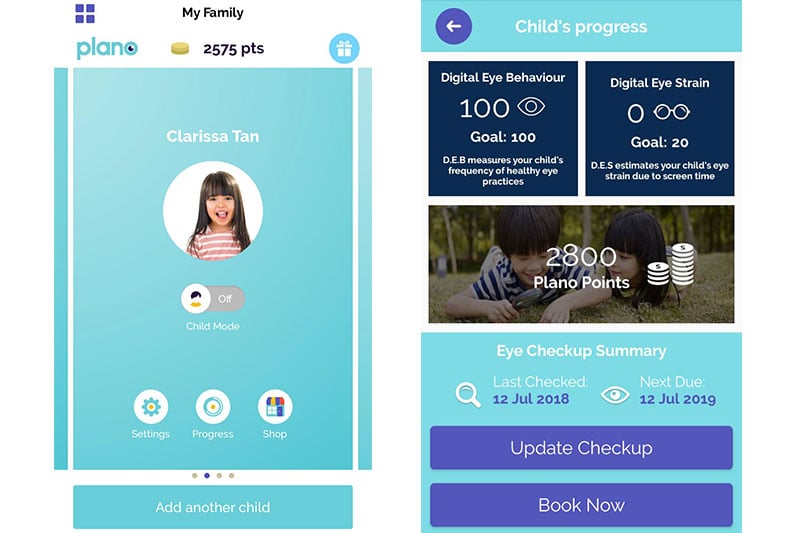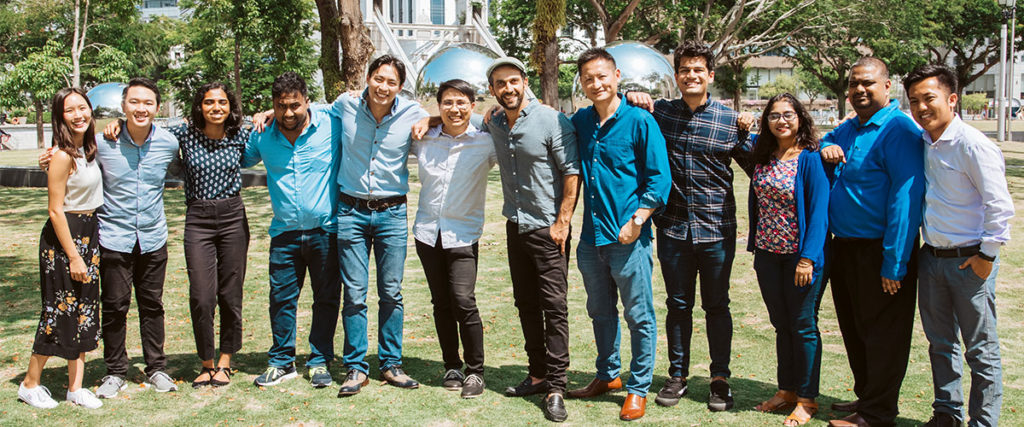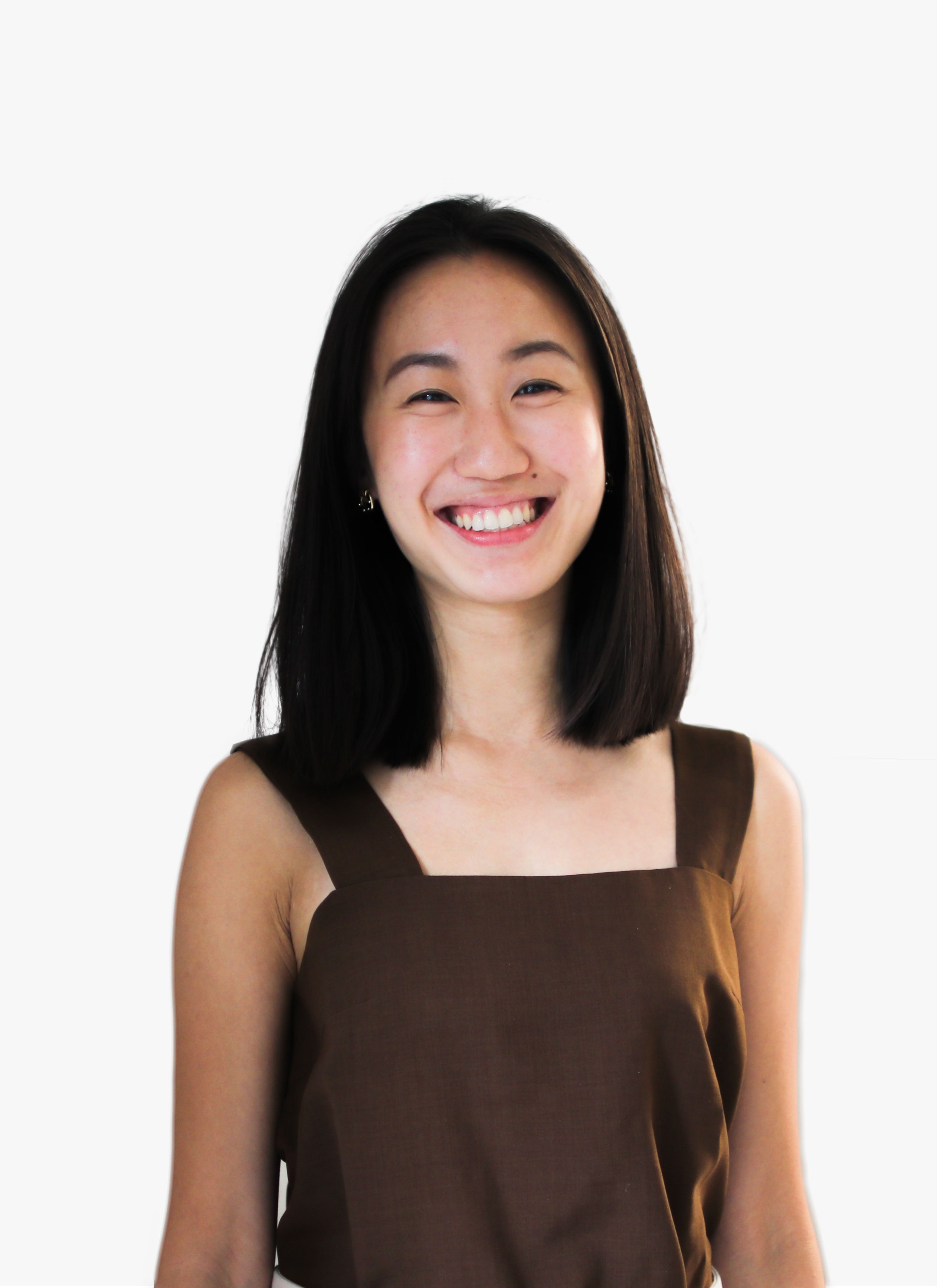Nowadays, our smartphones act as extensions to our hands. The damaging effects they have on our eyes, however, are less useful. Plano founder Dr Mo Dirani talked to Hive Life about his global vision to save sight in a digitised world.
A researcher turned entrepreneur from Melbourne, Dr Mo Dirani spotted the need for an app to address a growing problem amongst a whole generation of children. Myopia, or near-sightedness, affects two billion people worldwide, with screen time playing a huge role in delivering this epidemic. To fight it, he decided to create Plano, an app that helped parents and children limit screen time, heading off later sight problems before they even start. “I don’t think technology is the problem, but what’s wrong is the relationship we develop with technology. So I thought, how can I potentially flip the problem being the phone or tablet into the solution?”

Using our reliant relationship with technology to his advantage, Dr Mo developed Plano – a parental control app that limits children’s screen time on tablets and phones with features such as a time tracker, app blocker and face-to-screen detection to ensure your eyes are kept at a healthy distance. With Plano, parents can even choose where their children’s devices can be used, for example restricting gaming apps around school. For Mo, time was of the essence in bringing his product to the market. “Singapore is already known as the myopia capital of the world, and device uptake and engagement are hitting every corner,” he says. “The penetration of the Internet is increasing, as is device usage. So it’s very much a hot topic.”
You might also like Meditation Health App MindFi Could Save Your Life
Breaking old habits and creating new ones early is the best way to save sight. “We believe if particular risk factors such as the amount of time you spend on devices, or a lack of outdoor activity, are modified early in one’s life, it can slow the progression of myopia,” Mo urges. “We do this by positive reinforcement with empowering messages, as well as a points system to incentivise these changes.” Plano offers users the ability to claim rewards for these points earned from completing milestones such as taking timely breaks from your screen, and not spending more than two hours on devices. Rewards include discount vouchers for fun activities such as Mega Adventure that you can choose from in the Plano in-app shop as a motivation for children and parents to make and track visible progress together.

Mo’s idea for Plano kicked off in a roundabout way. He had taken part in one of the largest twin studies of his time during his PhD at the University of Melbourne, tasked with studying genetic variance for vision. “What we found is that, indeed, there is a genetic component to myopia, but actually, there was also this environmental component that needed credit too.” Inspired to see his findings on paper come to life, he launched the app in 2017 with the hope of putting prevention in the hands of the people. “What I’d been struggling with was the translational element of research, and how we can truly use our findings to influence the quality of care and life at a much bigger level,” he says.
For Mo, the plan is that his app acts not just as a monitor, but also as an educator, encouraging people to connect with the need for basic eye care. “Plano is a health tech company, but also an entire ecosystem. Currently, the utilisation of eye care is low. We need more families going.” To do that, he has introduced a referral system that connects users to accessible eye clinics nearby on the app itself. “We really want to go big with the referral system. We want the platform to be able to get children into optometry. So, we prompt parents with in-app reminders that their child needs an eye examination. By pressing ‘book,’ Plano tells the optometrist and clinics get business. Basically, we’re closing the loop of eye care.”
Launching in Singapore has been a great springboard for Plano. “There was some structure to the madness, and that was the type of audience, government support and the innovative nature of Singapore, which I thought was well ahead of Australia. It’s a much more happening city,” says Mo of his experiences so far. With over 200,000 users to date, next, he is looking to expand his user base further. “We’ve partnered with Oculo, a company in Australia and New Zealand that has 75% of the optometry network. We also want to increase our user base and engagement through international expansion – and don’t underestimate the entry into China and the US. Myopia is a huge problem. It’s a global one; it’s no longer an Asian problem. And Plano alone cannot solve it.”
Related Articles
MyDoc: Solving Asia’s Healthcare Crisis With Technology?





